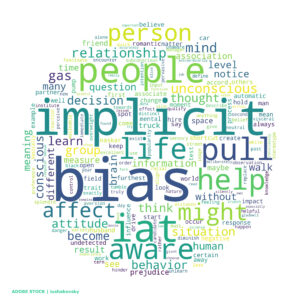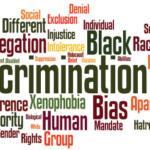‘Why Don’t We Have a Representative Workforce?’ & Other Questions: How Implicit Bias Affects Medicine
Editor’s note: ACR on Air, the official podcast of the ACR, dives into topics important to the rheumatology community, such as the latest research, solutions for practice management issues, legislative policies, patient care and more. Twice a month, host Jonathan Hausmann, MD, a pediatric and adult rheumatologist in Boston, interviews clinicians and rheumatology professionals on important topics in rheumatology. In a series for The Rheumatologist, we provide highlights from these relevant conversations. Listen to the podcast online at acronair.org, or download and subscribe to ACR on Air wherever you get your podcasts. Here we highlight episode 34, “Responding to and Dealing with Implicit Bias as a Healthcare Provider,” which aired on Aug. 2, 2022.

How much does implicit bias affect the decisions rheumatologists and other physicians make with their patients? An episode of ACR On Air explored implicit bias with researcher and author Arin Reeves, JD, PhD, founder and managing director of Nextions, a Chicago-based firm focused on workplace culture change.
Defining Implicit Bias
Dr. Reeves explained that biases are essentially shortcuts in our brains to understand life. Biases are different from instincts because biases are learned. Influences from family, TV and other media and religious beliefs all contribute to our biases. Those biases are then used at home, school and the workplace.
Over time, we may learn to respond to spiders as scary or flowers as pretty. In the same vein, we develop unconscious assumptions about people, Dr. Reeves says. Example: Many people may think of women as nurturing and men as strong.
She clarifies that implicit biases aren’t intentionally meant to exclude others, but they can influence our decisions without us realizing it. This definition is in contrast with explicit bias, when people are aware of their prejudices and attitudes toward certain groups and want to hurt or discriminate against others based on their prejudicial views.
Within medicine, implicit associations can influence decisions made during patient care. “When you are in a position to make decisions [that] influence or impact other people’s lives, that’s where the bias creates inequities, disparities and other things,” says Dr. Reeves.
Status Quo & Other Biases
One form of implicit bias is status quo bias, which Dr. Reeves describes as following a pattern because it has been the norm. Example: At a hospital, it could involve hiring a white man instead of a Latinx woman because that is who has traditionally been hired.



